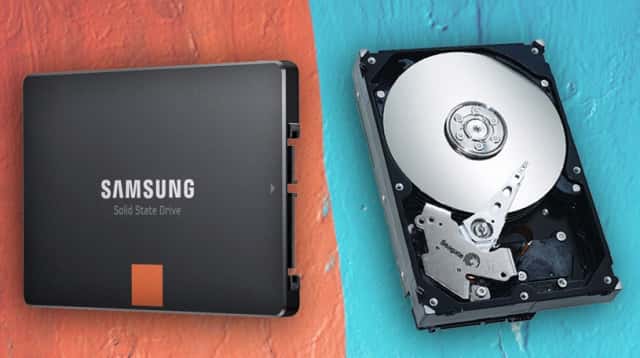 Solid State Drives Solid State Drives
The prices for
SSDs (Solid State Drives) are finally heading down, so now seems like a good time to revisit what they are and why you should consider upgrading to one.
Basically, until SSDs came on the market, all hard drives were mechanical devices similar to sealed record players, with a spinning disk and a read/write arm to access data. SSDs use a fully electronic reading and writing approach - there are no longer any mechanical parts. Therefore, a computer that uses an SSD for storage is MUCH faster than one that uses a standard drive.
Many new systems, especially laptops, come with SSDs these days. You can tell if you are looking at a system with an SSD as they often have storage capacities of 128, 256, or 512 GB. The higher the capacity, the more expensive the drive. However, if you are shopping for a new laptop with an SSD, don't get a system with less than 128GB of storage, as you will quickly run out of space. Even 128 is kind of the bare minimum - I would recommend springing for 256GB.
As far as older systems are concerned, there is a
bsolutely nothing that will improve the performance of your system as much as replacing the current drive with an SSD. I do this upgrade all the time, sometimes for people with a drive failure, sometimes just to improve system performance. If you are interested in an upgrade just give me a call - it's a flat rate service, plus the cost of the drive, which I will choose base on your current storage usage. Most laptops, desktops, and Windows All-in-Ones are relatively easy for me to upgrade. However, there are a few models of HP and Dell laptops, and all iMacs, that require too much disassembly for me to work on, so please let me know the make and model of your system.
One thing I am seeing more of are computers with two drives - a 128GB SSD, and a 1TB standard drive. This is not a bad compromise for price and performance, but it
takes a little expert setup to get working right. If you have purchased one of those systems and are having trouble with it, let me know - I can make it work much better for you. And if you are considering buying one of those systems, you will be much happier if you
have me do the migration and set it up for you.
|